
Blog
Discover the Future of Brewing: Innovative Coffee Machines Transforming Your Morning Routine
As the coffee culture continues to thrive globally, the coffee machines market is projected to reach a staggering $30 billion by 2025, according to a recent industry report. With advancements in technology and a surge in consumer demand for high-quality brewing experiences at home, innovative coffee machines are revolutionizing our morning routines. These machines are not only enhancing convenience but also allowing users to personalize their brewing processes, catering to the diverse palates of coffee lovers everywhere.
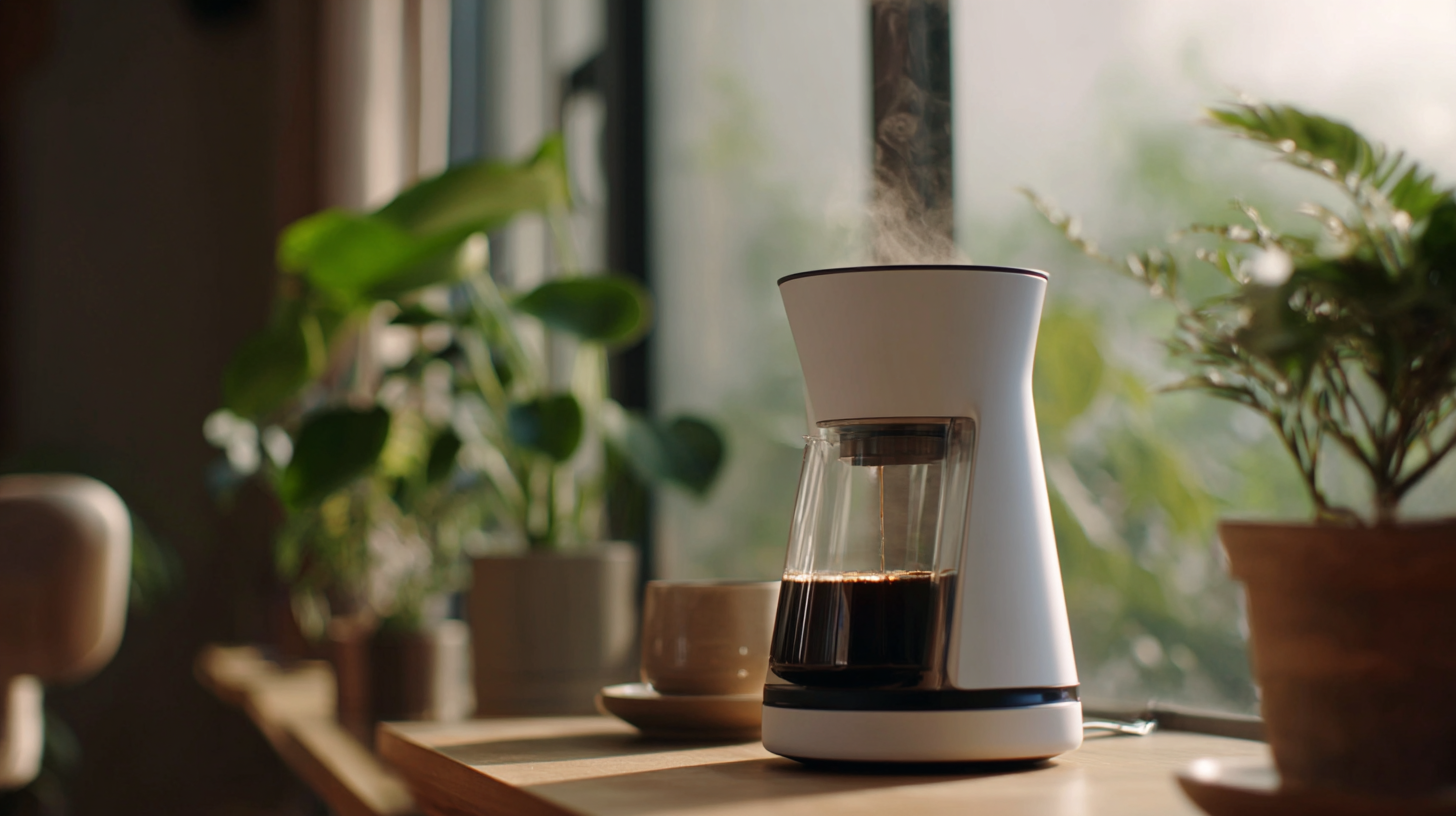
Features such as smart connectivity, automatic grinding, and customizable brew strengths are becoming standard, enabling enthusiasts to explore an array of flavors and styles with ease. As we delve into the future of brewing, it's evident that the evolution of coffee machines is set to redefine how we enjoy our beloved beverage, marrying tradition with cutting-edge technology for an unparalleled coffee experience.
The Rise of Smart Coffee Machines: How AI Enhances Your Brewing Experience
The rise of smart coffee machines has revolutionized the way we experience our favorite morning brew. According to a report by Statista, the global smart coffee machine market is expected to grow significantly, with an estimated value of $1.2 billion by 2025. This surge is primarily driven by advancements in artificial intelligence (AI) and Internet of Things (IoT) technology, which allow for personalized brewing experiences. These machines learn user preferences over time, adjusting brewing temperature and extraction time to create the perfect cup tailored to individual tastes.
AI-integrated coffee makers are equipped with features that enhance convenience and efficiency. A survey conducted by the Specialty Coffee Association found that nearly 70% of coffee drinkers express interest in having a smart coffee machine that can be controlled remotely. This desire reflects a broader trend towards smart home appliances. Moreover, some machines utilize machine learning to suggest recipes based on available coffee beans and brewing methods, ensuring that users can enjoy a café-quality experience at home. As this technology continues to evolve, the future of brewing looks increasingly sophisticated and user-friendly.
Exploring the Impact of Brew Time on Flavor Extraction: A Science-Based Approach
In the realm of coffee brewing, the significance of brew time on flavor extraction cannot be overstated. According to a recent study published by the Specialty Coffee Association, optimal extraction occurs when coffee is brewed between 25 to 30 seconds for espresso, while drip coffee requires a brew time of 4 to 6 minutes. These timeframes are crucial for achieving the perfect balance of sweetness, acidity, and bitterness, ensuring a delightful cup every morning. Neglecting these parameters can result in under-extraction, leading to a sour taste, or over-extraction, which produces an unpleasant bitterness.
As coffee technology evolves, innovative machines are now equipped with programmable features allowing users to precisely control brew time, temperature, and even water flow rates. For those seeking to enhance their morning ritual, investing in machines like the Breville BES870XL or the Chemex Coffee Maker, which offer customizability and precision, can drastically improve flavor profiles.
**Tips:** When experimenting with brew times, start with small adjustments—try increasing or decreasing by 10-15 seconds—to discover your ideal flavor profile. Additionally, ensure your coffee grounds are consistent in size; uneven grind can lead to inconsistent extraction and, subsequently, lost flavors.
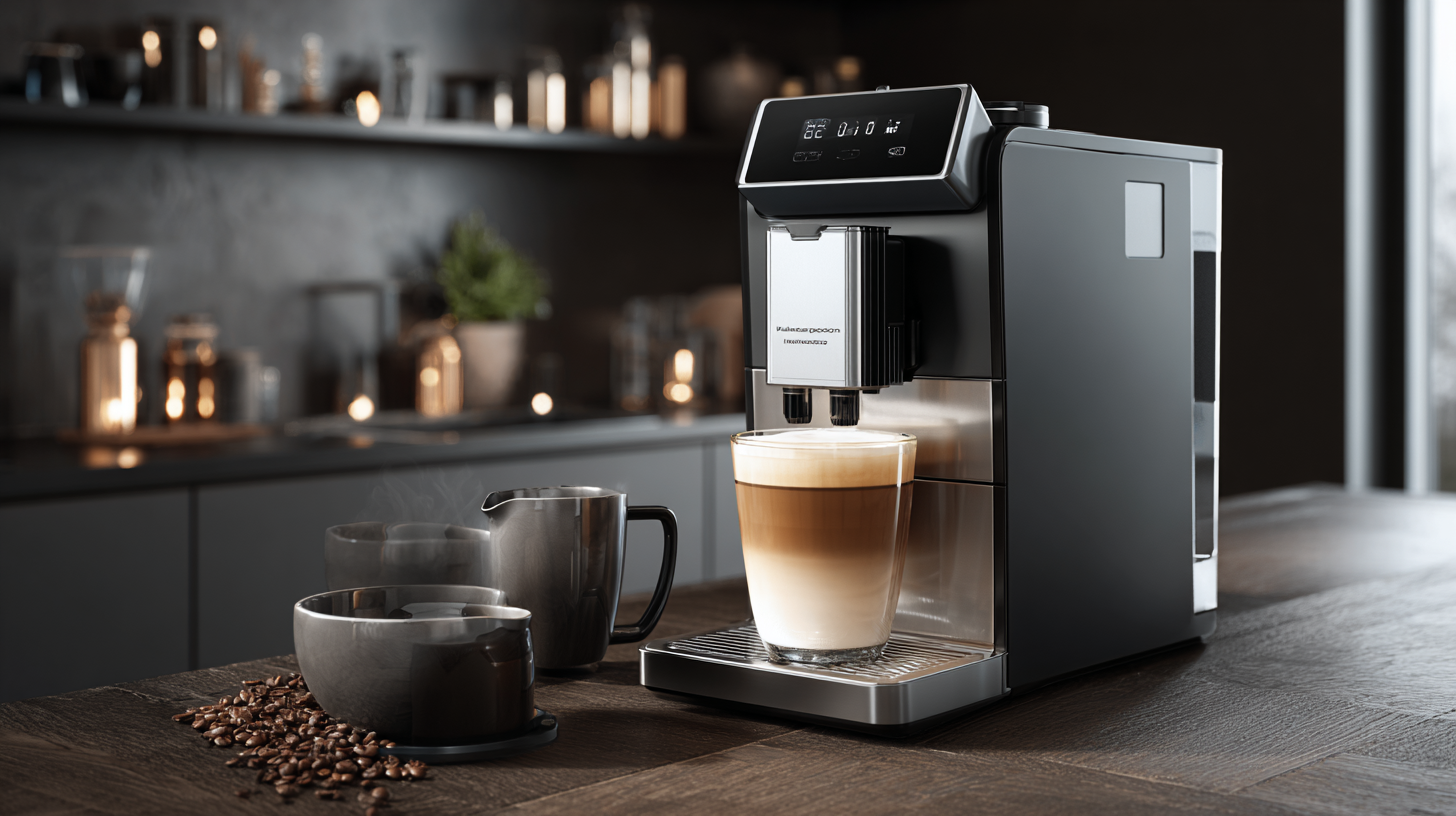
Sustainability in Coffee Brewing: Innovations That Reduce Waste and Energy Consumption
The coffee industry is undergoing a significant transformation, particularly with a growing emphasis on sustainability. According to the Specialty Coffee Association, approximately 25% of coffee drinkers are actively seeking out eco-friendly options. This increased demand is driving innovations in coffee machines designed to minimize waste and reduce energy consumption.
For instance, newer models of coffee makers now utilize precision brewing technology, which optimizes the use of water and coffee grounds, resulting in up to 20% less waste per brew compared to traditional machines.
In addition to reducing waste, many of these innovative coffee machines feature energy-efficient designs that align with sustainable practices. Reports indicate that energy-efficient coffee machines can consume up to 30% less electricity than their conventional counterparts. By integrating features such as automatic shut-off and programmable brewing schedules, manufacturers are addressing the environmental impact of coffee consumption. As consumers become more conscientious about their choices, these advancements not only enhance the brewing experience but also contribute to a larger movement towards more sustainable living in our daily routines.
Customization in Coffee Preparation: Tailoring Your Morning Brew Using Advanced Technology
The landscape of coffee brewing is undergoing a remarkable transformation, thanks to advanced technology. Modern coffee machines are now equipped with smart features that allow users to customize their brewing experience like never before. According to a recent report by the Specialty Coffee Association, nearly 65% of coffee drinkers express a preference for machines that offer personalization options, enabling them to fine-tune aspects like grind size, brew temperature, and extraction time. This level of customization not only enhances flavor profiles but also caters to individual preferences, making every cup unique.
For those looking to optimize their morning routine, consider investing in machines that feature app connectivity. These devices allow you to save your favorite recipes or adjust settings remotely, ensuring your coffee is ready when you wake up. Additionally, pay attention to models that offer single-serve capabilities with customizable settings, as they are increasingly popular—reported to account for 30% of the market in 2022.
Tip: Experiment with different grind sizes and brew temperatures to find the perfect balance for your taste buds. Start by adjusting the grind size in small increments to discover how it affects your coffee’s flavor intensity.
Customization in Coffee Preparation: Tailoring Your Morning Brew Using Advanced Technology
The Future of Connectivity: Integrating Coffee Machines with Smart Home Ecosystems
The integration of coffee machines with smart home ecosystems is reshaping how we engage with our daily brewing rituals. With the global coffee machine market projected to reach $73.6 billion by 2024, consumers are increasingly drawn to innovative devices that enhance their morning routines through connectivity and automation. These advanced machines not only brew coffee but also communicate with other smart home devices, allowing for a seamless integration into the digital lifestyle.
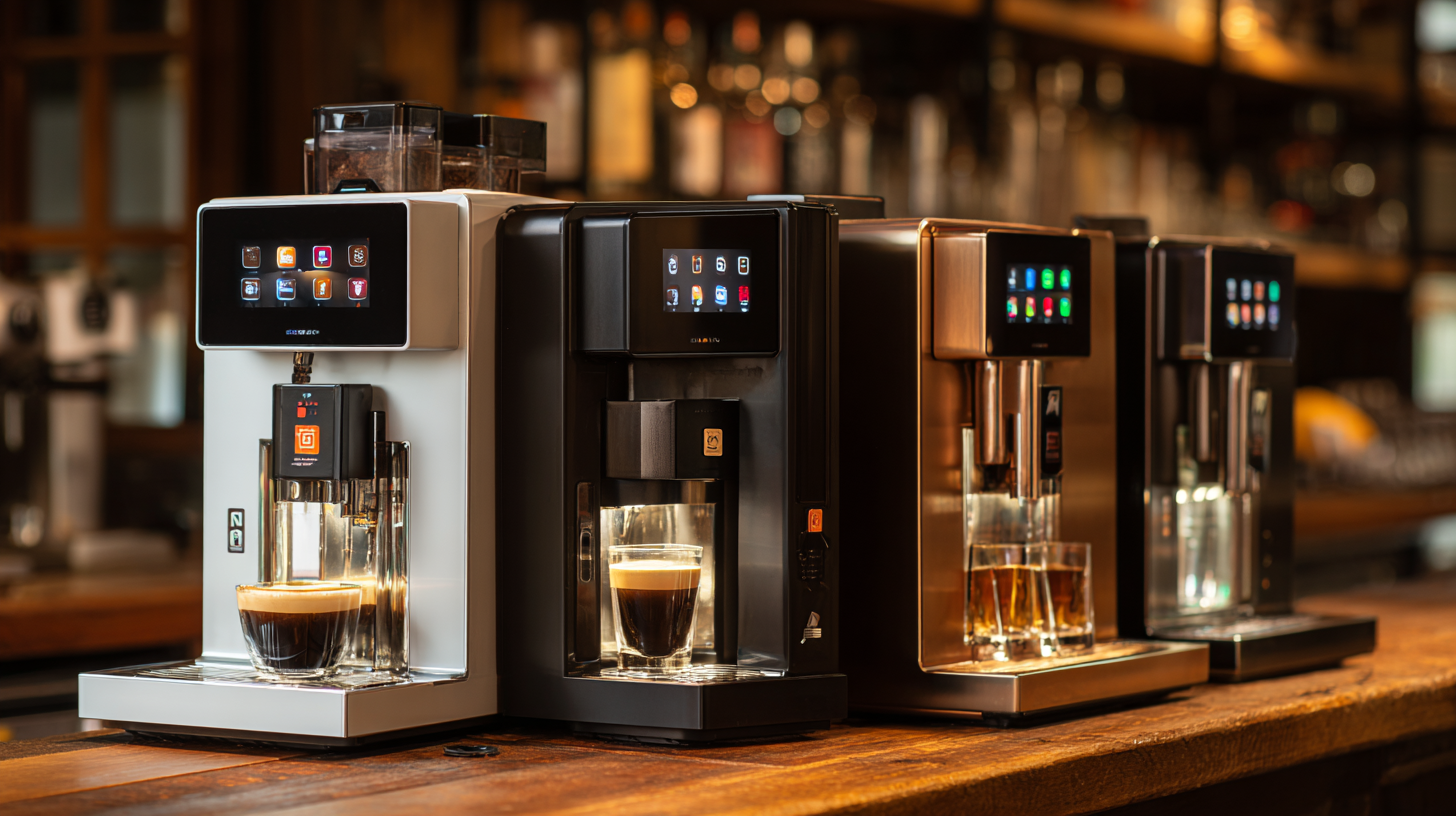
As smart home technology continues to evolve, the introduction of features such as Wi-Fi 6 and low-energy Bluetooth in coffee machines signifies a shift towards smarter appliances. Users can now control their coffee makers through voice commands or mobile apps, scheduling brewing times to fit their routines or adjusting settings without being present. This level of connectivity not only offers convenience but also caters to the growing demand for personalized coffee experiences that can adapt to individual preferences and habits. With the market for these intelligent home appliances rapidly expanding, the future looks brewed to perfection.
Related Posts
-
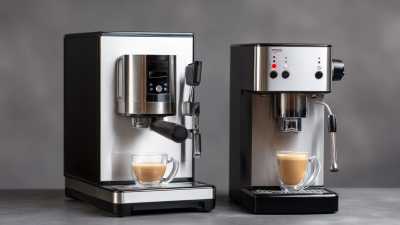
Ultimate Checklist for Choosing the Best Single Coffee Machines for Your Business
-
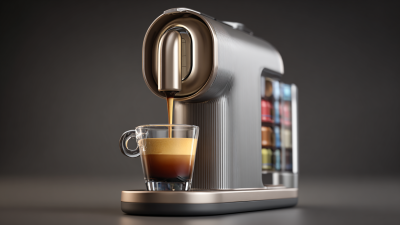
Future Innovations in Best Single Coffee Machines Shaping the Coffee Industry by 2025
-

5 Essential Tips for Choosing the Perfect Coffee Maker Machine for Your Business Needs
-

Ultimate Comparison of the Best Workplace Coffee Machines for Your Office
-
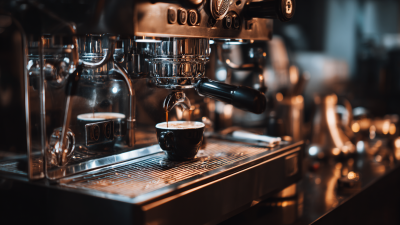
The Ultimate Guide to Choosing Coffee Equipment: Industry Insights and Expert Recommendations
-
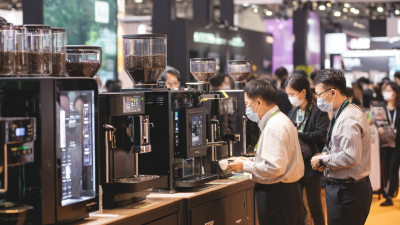
Exploring the Coffee Machines Market Trends at the 138th China Import and Export Fair in 2025
